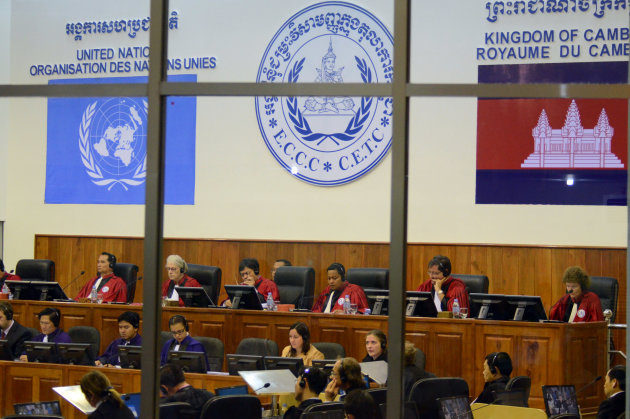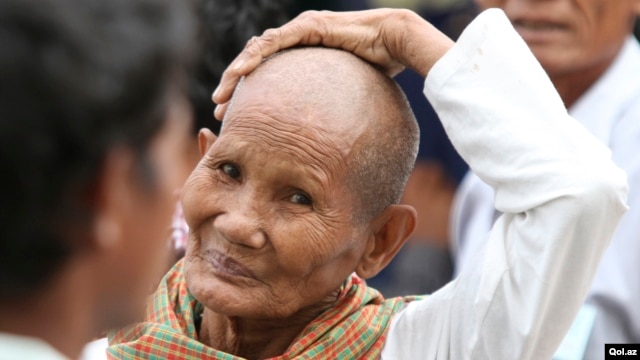WillowTree
Diamond Member
- Sep 15, 2008
- 84,532
- 16,093
- 2,180
Three decades after the fall of Pol Pot, the first trial of the leaders of his genocidal Khmer Rouge regime is to begin Tuesday before a U.N.-backed tribunal -- the Extraordinary Chambers of the Courts of Cambodia (ECCC).
On Tuesday, a thin, elderly former schoolmaster will stand in the dock in a bland courtroom on the outskirts of Phnom Penh, accused of crimes against humanity committed 30 years ago.
Kang Kek Leu, known as Comrade Duch, was the director of the infamous Tuol Sleng prison, the torture and interrogation center in Phnom Penh where thousands of innocent people were sent to die.
FOXNews.com - Trial of Khmer Rouge Leaders Finally Brings Cambodians Hope for Justice - International News | News of the World | Middle East News | Europe News
why did they wait 30 years? Gathering forensics doyathink?
On Tuesday, a thin, elderly former schoolmaster will stand in the dock in a bland courtroom on the outskirts of Phnom Penh, accused of crimes against humanity committed 30 years ago.
Kang Kek Leu, known as Comrade Duch, was the director of the infamous Tuol Sleng prison, the torture and interrogation center in Phnom Penh where thousands of innocent people were sent to die.
FOXNews.com - Trial of Khmer Rouge Leaders Finally Brings Cambodians Hope for Justice - International News | News of the World | Middle East News | Europe News
why did they wait 30 years? Gathering forensics doyathink?




